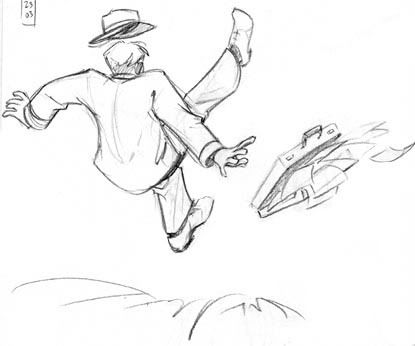President Bush's 2008 Budget intends to extend and make permanent most of the tax cuts of his administration and completely repeal the Estate Tax.
Winners and Losers in Bush's budget:
Winners: If the Estate Tax were to be repealed completely, the estimated savings to just one family, the Walton family, the heirs to the Wal-Mart fortune, would be about $32.7 billion dollars over the next ten years.
Losers: The proposed reductions to Medicaid over the same time frame? $28 billion.
Winners: The heirs to the Mars candy corporation. If the estate tax goes, they will receive about $11.7 billion in tax breaks.
Losers: That's more than three times the amount Bush wants to cut from the VA budget (3.4 billion) over the same time period.
Winners: Cox family (Cox cable TV) receives $9.7 billion tax break.
Losers: Education gets $1.5 billion in cuts.
Winners: Nordstrom family (Nordstrom dept. stores) receives $826.5 million tax break.
Losers: Community Service Block Grants would be eliminated, a $630 million cut. CSBG provides the infrastructure necessary to deliver services to 15 million of the lowest income people in this country, people who are hungry, people who are homeless, people who are struggling to stay alive.
Winners: Ernest Gallo family receives a $468.4 million tax break.
Losers: LIHEAP (heating oil to poor) gets a $420 million cut. According to the latest available data, 5.4 million senior citizens on fixed incomes and low-income families with children receive help paying their heating bills through this program each and every year. Millions more qualify for this assistance, but don't get anything due to a lack of funding.
Winners: The family of the former CEO of Exxon Mobil Lee Raymond. His family would receive a $164 million tax break. Remember, Exxon-Mobil became the most profitable company in the history of the world on the backs of millions of Americans struggling to pay for gas at the pump. The company awarded Lee Raymond with a $400 million retirement package. And, now the President wants to reward Mr. Raymond by providing his estate with an estimated $164 million tax break from Uncle Sam.
Losers: 480,000 low-income seniors, mothers and newborn children. That's the estimated number of Americans receiving one bag of groceries a month through the Commodity Supplemental Food Program. Last year, this program received $108 million. But, the President wants to eliminate this program because we don't have enough money. We have enough money to provide a $164 million tax break for Lee Raymond's estate. But, we don't have enough money to provide a $20 bag of groceries to 480,000 of the neediest senior citizens, mothers and newborn children in this country.
(Source: Senate floor speech: Congressional Record of February 14, 2007)
Matt Taibbi, a writer for Rolling Stone made the following observation (edited for language, he was apparently very angry):
Even if you're a traditional, Barry Goldwater conservative, the kinds of budgets that Bush has sent to the hill not only this year but this whole century are the worst-case scenario; they increase spending generally while cutting taxes and social programming. They commit taxpayers to giant subsidies of already Croseus-rich energy corporations, pharmaceutical companies and defense manufacturers while simultaneously cutting taxes on those who most directly benefit from those subsidies. Thus you're not cutting spending -- you're just cutting spending on people who actually need the money. (According to the Washington Times, which in a supremely ironic twist of fate did one of the better analyses of the budget, spending will be 1.6 percent of GDP higher in the 2008 budget than in was in 2000, while revenues will be 2.6 percent of GDP lower). This is something different from traditional conservatism and something different from big-government liberalism; this is a new kind of politics that transforms the state into a huge, ever-expanding instrument for converting private savings into corporate profit.
That's not only bad government, it's bad capitalism. It makes legalized bribery and political connections more important factors than performance and competition in the corporate marketplace. Beyond that, it's just plain (expletive deleted) offensive to ordinary people. It's one thing to complain about paying taxes when those taxes are buying a bag of groceries once a month for some struggling single mom in eastern Kentucky. But when your taxes are buying a yacht for some (expletive deleted) who hires African eight year-olds to pick cocoa beans for two cents an hour ... I sure
don't remember reading an excuse for that anywhere in the Federalist Papers.
As Jesus started on his way, a man ran up to him and fell on his knees before him. "Good teacher," he asked, "what must I do to inherit eternal life?"
"Why do you call me good?" Jesus answered. "No one is good—except God alone. You know the commandments: 'Do not murder, do not commit adultery, do not steal, do not give false testimony, do not defraud, honor your father and mother.'"
"Teacher," he declared, "all these I have kept since I was a boy."
Jesus looked at him and loved him. "One thing you lack," he said. "Go, sell everything you have and give to the poor, and you will have treasure in heaven. Then come, follow me." Mark 10:17-21
 This is the face I see when I hear J. D. Sumner do the piece recorded on YouTube below. I was named for this man, my grandfather, who spent his entire life farming the same land farmed by his father, grandfather, great grandfather and so on.
This is the face I see when I hear J. D. Sumner do the piece recorded on YouTube below. I was named for this man, my grandfather, who spent his entire life farming the same land farmed by his father, grandfather, great grandfather and so on.































